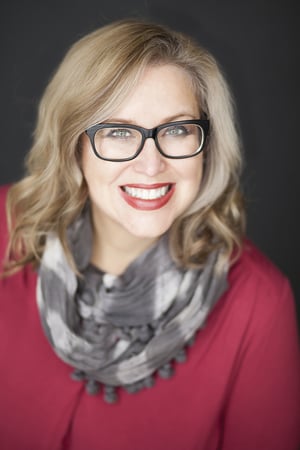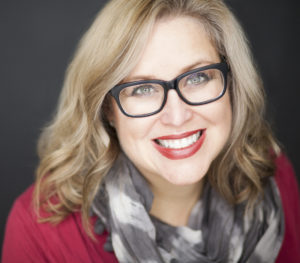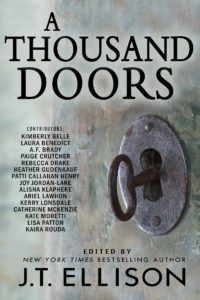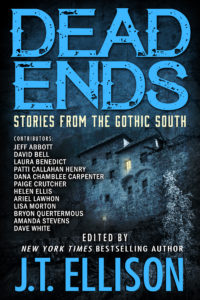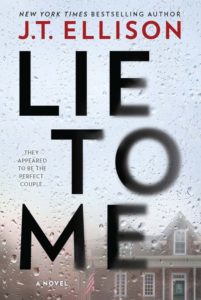Laura Benedict here. Refilling, refueling, refreshing…There are many names for it, but they all refer to giving our creativity the chance to enjoy a well-earned rest. To give it some space, and let our subconsciouses play so we can come back and mine it when we’re ready. My guest today is my good friend, J.T. Ellison, and she and I have had hundreds–yes, hundreds–of conversations about staying creative and navigating flashes of burnout for over a decade. Given that J.T. has published 22 novels since 2007, along with a significant number of stories, novellas, and anthologies, she knows well the challenges of keeping her work fresh and herself productive, yet also sane.
Welcome, J.T.!
* * *
“I’ve always wanted to write a boarding school mystery…”
Let me set the stage. 2018. St. Petersburg, Florida. Bouchercon. A long lunch with an editor, a publisher, a spouse, and a completely burned out author.
I’m not one for tears, but I was feeling it that day. I’d been juggling too much, jumping back and forth between my books and my co-written series, work for the TV show, traveling all over the place, and I was feeling it. I tend to bite off more than I can chew anyway, but at that moment, I had the horrible sense that writing had become work. It’s happened a couple of times in my career, so I recognized what I needed. A break.
Of course, that’s the very last thing any editor wants to hear, but I didn’t think I had a choice. It was take a break or flame out completely.
I’ve worked with my team long enough to be comfortable being honest with them. We talked frankly about author burnout, about finding the joy in the work, about how sometimes, you have to take a break from the grind, write something that you know will be fun. And the words slipped out: “I’ve always wanted to write a boarding school mystery.”
Though I wasn’t actively writing this story, I already had a character – Ash Carlisle. I already knew she was British, and was coming to America to attend an elite boarding school. I knew I wanted her to go from revered to reviled. That’s all I had. But my editor’s face lit up, and I knew I had to find a way to write the book. Just not then.
We left the lunch with a plan for me to regroup and get back to them when I thought I was ready to jump in. I planned to take the rest of the year off – two full months – and then spend six months on a new co-written book, then write the boarding school mystery.
We had scheduled a few days between events to go across the state for some east coast beach time. On the drive over, I was kicking myself. I’d had a conversation about burning out with another author friend, Carla Neggers, who rightly pointed out that some people have to work for a living and we writers have it pretty cushy. She didn’t exactly say suck it up and get back to work—or maybe she did, there was a lot of wine that night—but that’s what I heard. I was relaying this to my husband, feeling silly for my whining. “She’s right, of course. It’s not like I’m digging ditches. If I took a little time off now, maybe I could write the book by February.”
We talked it through. I only had one tour event left after Bouchercon, but February was only four months away. I had the setting, the main character, and the semblance of a plot. It wasn’t like I’d need to do a lot of research—I attended an all woman’s boarding college and was planning to use it as my setting anyway. We’d just been to Oxford, so Ash’s hometown was fresh in my mind. I had a sense of who she was. And it would be a fun book to write. A really, really fun book to write. Hauntings and history, secret societies and hazing, all against a backdrop of one of the prettiest campuses in the country.
I texted my editor, who said yes, they could work with February. I took three full days at the beach to recharge my batteries, handled a couple more events. And then off I went. I started writing in early November and the story just poured out. It was so much fun. I rediscovered the joy of writing. I wrote a few scenes in screenplay format to make sure the visuals worked, played and played with it, hit my usual ¾ of the way in block, where I need to blow up the book to make it all make sense. I even went so far as to change POVs after I’d written a large chunk of it, which truly brought it to life.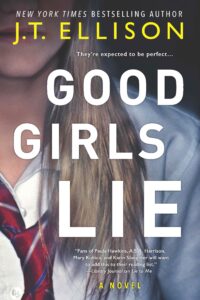
I made that deadline (with a small two week extension). My editor loved the book. And here we are, 14 months after my temporary meltdown, and GOOD GIRLS LIE is about to be in stores. It feels like a huge triumph, because this book refilled my well so completely that I found a new joie de vivre for my writing. It’s amazing to me how these things work themselves out.
I think it’s very important for writers—artists in general—to take a step back when they’re feeling burned out or discouraged. You may think you need months off, but a few days at the beach could be the ticket. Or writing a book that you’ve had simmering in your subconscious, one that you want to write, that you know will be a blast to experience. Your passion project will refill your well, and isn’t that what we all want?
Have you ever wanted to take a break from writing, or been forced to by life circumstances? How did you find your way back?
J.T. Ellison is the New York Timesand USA Today bestselling author of more than 20 critically acclaimed novels, including TEAR ME APART, LIE TO ME, and ALL THE PRETTY GIRLS, and coauthored the “A Brit in the FBI”series with #1 New York Timesbestselling author Catherine Coulter. J.T. is also the EMMY®Award-winning co-host of the television series A Word on Words. Her forthcoming novel, GOOD GIRLS LIE, was a LibraryReads Pick for December 2019 and received a starred review from Publishers Weekly. For more, please visit www.jtellison.com, or visit her online @thrillerchick. An excerpt of GOOD GIRLS LIE is available now.

